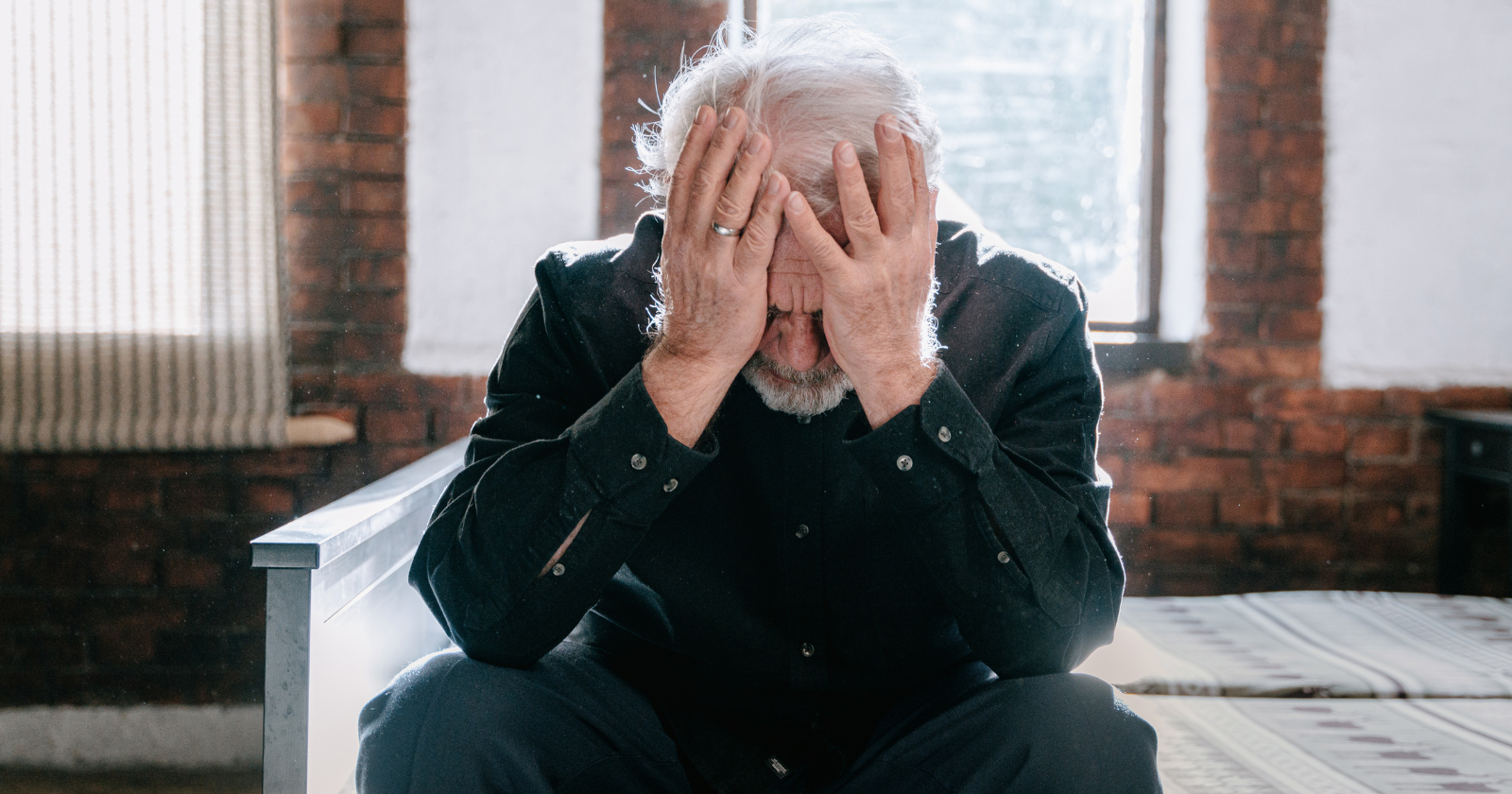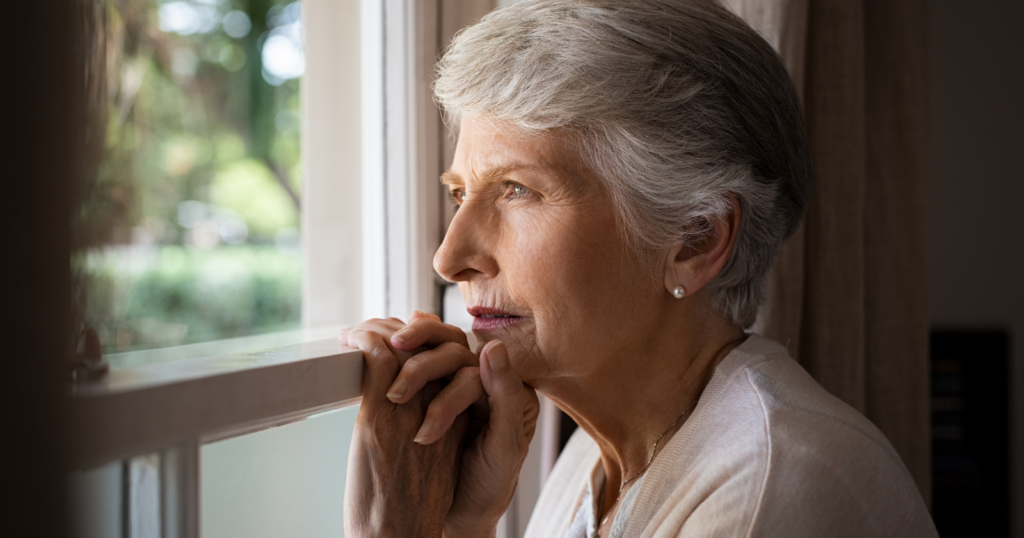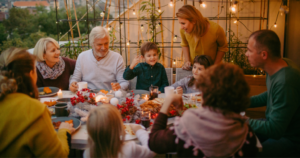Growing older is often associated with wisdom and tranquility, but unfortunately, some people tend to become joyless as they reach their 70s. The culprit? Unconscious habits that they adopt without even realizing it.
In the journey of aging gracefully, understanding these habits is half the battle. I’m here to help you recognize them before they steal away your zest for life.
Contrary to popular belief, joylessness in your 70s isn’t a given. It’s often a result of certain patterns of behavior that can be tweaked or transformed with a little awareness.
Let’s delve into these habits, with the hope that awareness can pave the way for happier golden years. After all, age is just a number and joy should be timeless.
1) Reluctance to embrace change
Growing older doesn’t mean you should stop embracing change. In fact, one common habit among those who become joyless in their 70s is their resistance to change.
It’s understandable. After all, change can be scary and our comfort zones are, well, comfortable. But adaptability is one of the key traits linked with happiness and satisfaction in life, regardless of age.
Consider technology, for instance. It’s rapidly evolving and has become an integral part of our daily lives.
Resisting it can lead to a sense of isolation from the world and even from loved ones who communicate primarily through digital platforms.
Embracing change, on the other hand, can keep you connected, engaged and interested in the world around you. It’s about maintaining a sense of curiosity and openness that can fuel joy and a zest for life.
Remember, adapting to change isn’t about keeping up with the times, rather it’s about staying connected with life and maintaining a joyful outlook.
2) Neglecting physical activity
I’ve noticed, particularly with my own grandparents, how crucial physical activity is for maintaining a joyful outlook in later years.
My grandmother, bless her heart, is nearing her mid-80s, but she has a zest for life that rivals anyone half her age. And I firmly believe that her commitment to staying active plays a significant role in this.
Every morning, rain or shine, she goes for a walk around the neighborhood.
It’s not just about the physical benefits but also the social aspect – waving to neighbors, chatting with friends she meets along the way. It keeps her connected and engaged with her community.
On the other hand, my grandfather was the opposite. He was more sedentary, spending much of his time indoors watching television. Over time, I observed a noticeable difference in their moods and overall outlook on life.
Physical activity doesn’t have to be strenuous exercise. It’s about keeping the body moving and staying engaged with the world around you.
It’s such a simple habit but can make a world of difference in maintaining joy and vibrancy into your 70s and beyond.
3) Overemphasis on past achievements
As we age, it’s natural to look back on our lives and reflect on what we’ve accomplished. However, too much focus on past glories can lead to a sense of stagnation and a lack of fulfillment in the present.
People who view their life as full of ‘peak experiences’ from the past are more likely to feel unsatisfied with the present. They feel their best years are behind them, leading to a decline in their current happiness levels.
It’s essential to celebrate and cherish your accomplishments, but it’s equally important to look forward and find joy in the present. This could be through new hobbies, experiences or simply finding contentment in the everyday.
Living in the present is key to maintaining joy into your 70s and beyond. It’s about creating new memories while cherishing the old ones, rather than living solely in the glory of yesteryears.
4) Failing to maintain social connections

Humans are inherently social creatures. We thrive on connections and relationships.
As we age, however, it can become increasingly challenging to maintain those important connections due to various factors such as health issues, loss of loved ones, or geographic relocations.
An unfortunate habit that many people fall into in their 70s is neglecting their social connections. This can lead to feelings of loneliness and isolation, which can significantly impact joy and overall happiness.
Staying socially active, maintaining friendships, and forming new relationships are all key to maintaining a joyful outlook in life.
This could be as simple as regular phone calls with family or friends, joining clubs or groups with similar interests, or even volunteering in the community.
Remember, it’s never too late to make a new friend or reconnect with an old one. It’s these social connections that keep us feeling valued, loved and joyful in our golden years.
5) Ignoring mental health
Not so long ago, I found myself dealing with an unexpected bout of anxiety. It was a challenging time, and I quickly realized the importance of mental health.
The same stands true at any age, even in our 70s. Mental health is just as critical as physical health. Yet, it’s often overlooked, with many attributing feelings of sadness or anxiety to ‘just getting old’. But that’s not the case.
Ignoring signs of depression, anxiety, or other mental health issues can lead to a downward spiral of joylessness. Seeking help, on the other hand, can have a profound impact on your overall well-being.
Whether it’s speaking to a professional therapist, practicing mindfulness, or simply opening up to a trusted friend about your feelings, addressing your mental health can significantly improve your quality of life.
In our 70s, it’s crucial to acknowledge our emotional well-being and take active steps towards maintaining positive mental health. After all, a healthy mind is vital for a joyful life.
6) Loss of purpose
Having a sense of purpose is essential for a fulfilling and joyful life, regardless of age. Unfortunately, retirement can sometimes lead to a loss of purpose for many, as they bid farewell to a significant part of their identity.
This shift can be challenging and lead to feelings of aimlessness or emptiness. The key is to find new activities, hobbies or causes that ignite passion and provide a sense of purpose.
Maybe it’s learning a new instrument, volunteering at a local charity, or even starting a small business from a lifelong passion. It could also be as simple as dedicating time to help raise your grandchildren or taking up gardening.
Discovering and pursuing these new interests can bring a renewed sense of purpose and joy in your 70s. Remember, retirement isn’t an end but rather the beginning of a new chapter filled with opportunities to explore and grow.
7) Neglecting self-care
Self-care isn’t just a buzzword; it’s a necessary habit for maintaining joy and well-being at any age. As we reach our 70s, it becomes even more critical.
This means taking care of your physical health, yes, but also your mental and emotional health. It’s about setting boundaries, saying no when you need to, and prioritizing activities that bring you joy.
Self-care can take many forms – from ensuring you get enough sleep, eating nutritious food, staying hydrated, to taking time for hobbies and interests that make you happy.
In the golden years of life, prioritizing self-care is not just about maintaining physical health; it’s about nurturing a sense of joy, fulfillment, and satisfaction in everyday life. So, remember to take care of yourself; because you matter.
Looking forward: It’s about attitude
As we traverse the journey of life, age is but a number. Our attitudes, habits, and perceptions significantly influence our happiness and joy in our later years.
Being aware of these habits that can creep into our lives as we venture into our 70s is crucial. But it goes beyond mere awareness.
It’s about making a conscious decision to live each day with joy, embracing change, staying active, nurturing relationships, taking care of our mental and physical health, finding purpose in new areas and focusing on self-care.
In essence, the recipe for a joyful life in our 70s isn’t elusive. It’s within our grasp and often lies in the everyday choices we make.
As we look forward, let’s remember that our golden years can indeed be golden with an attitude that embraces growth, adaptability, and joy.
Ageing then becomes not a journey into joylessness but a voyage into wisdom and contentment, illuminated by the glow of constant self-improvement and a zest for life.







